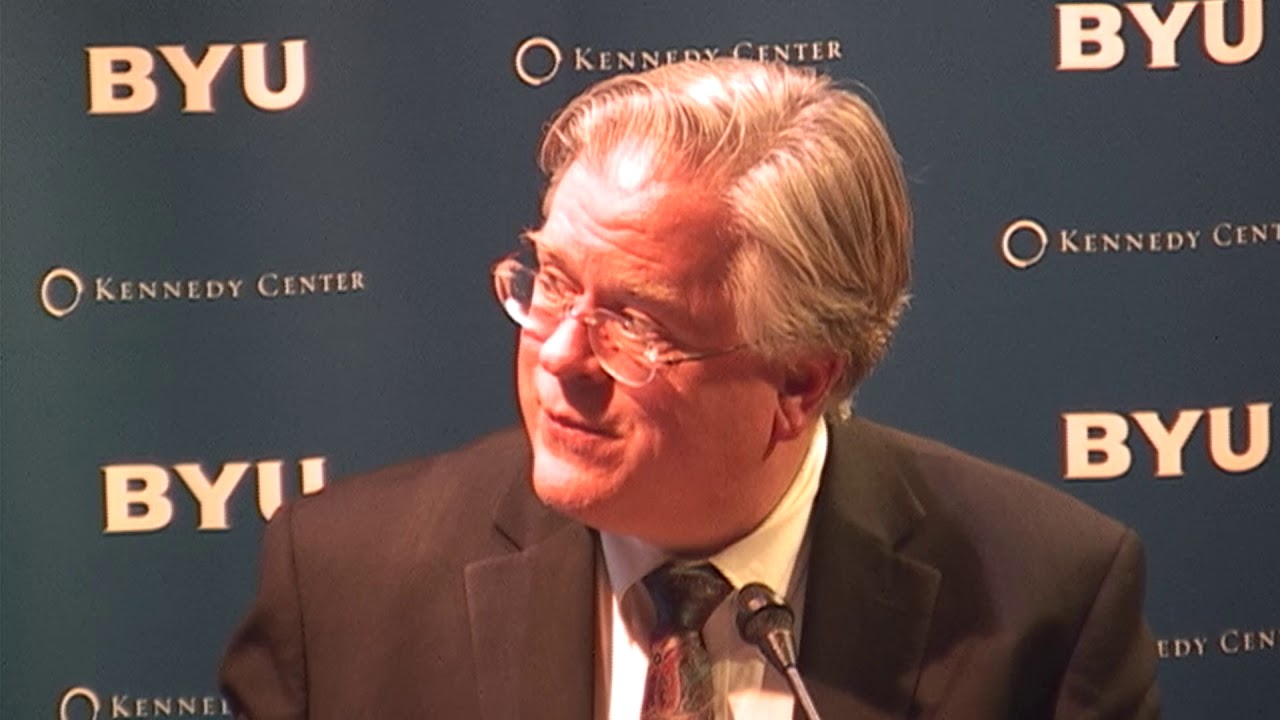

This a transcript of a lecture delivered on November 13, 2018 at the David M. Kennedy Center for International Studies, Brighton Young University, Provo, UT 84602, United States.
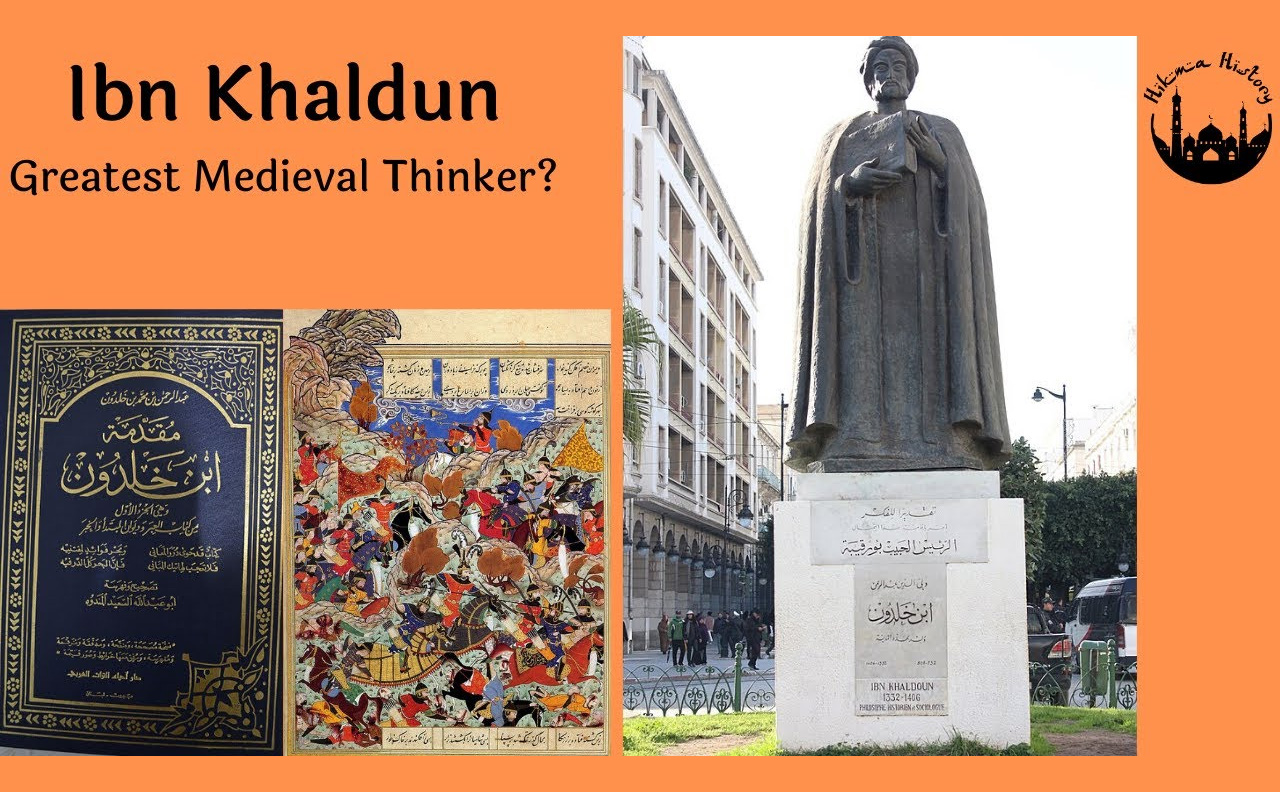

The life story and lessons of a one of a kind person in history, Ibn Khaldun!


Professor Glen Cooper discusses the Golden Age of Muslim Civilisation. During the European Dark Ages, when science, art and literature seemed to flounder for centuries, there actually was a lot of discover in places like…


“Science and Engineering in the Islamic Heritage”, a Symposium organised by Al-Furqān Islamic Heritage Foundation – Centre for the Study of Islamic Manuscripts, in co-operation with the Foundation for Science, Technology and Civilisation (UK), on…


On Friday 11 August 2017, the Foundation for Science, Technology and Civilisation UK, held two consecutive talks on the notion of 'Scholarship, Science & Technology in Sub-Saharan Africa'. The purpose of this event was to…


Nothing contrasts more the discrepancies in learning as the place of books. When Muslim libraries abounded with books, some containing even tens of thousands, and where students, scholars and any curious mind found a place,…


This paper presented at the 7th International Congress of the International Society of the History of Islamic Medicine, and 4th Fez Congress on History of Medicine, jointly organized by the University of Muhamed Ben Abdallah,…


It was in the year 672 A.H. (1273 A.C.) that Qadi Ibn Jama'ah completed his TADHKIRAH as a guide for students and teachers to help improve quality of their academic life and work...


The heyday of Baghdad was 1,200 years ago when it was the thriving capital of the Muslim world. It was home to the House of Wisdom, an academy of knowledge that attracted brains from far…


From 23rd to 24th April, Nida Trust, an organisation which aims to educate the next generation of young people through empowering and supporting students, teachers and parents, hosted hosted 55 exhibitors including schools, education organisations,…
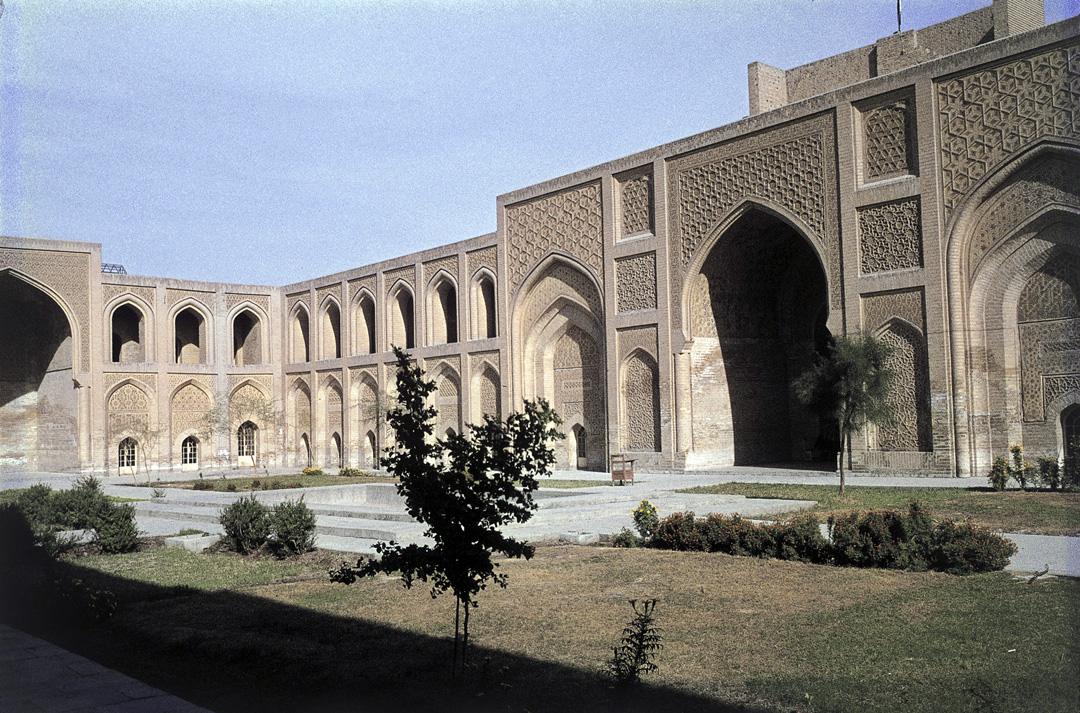

Baghdad schools are a challenging topic, involving several different facets of history. These include cartography to identify the location of each school, biographical studies to identify their teachers, preachers, jurists and administrators, along with their…


In order to popularise the diverse history of science. The Jordanian Society for History of Science (JORSHS) in collaboration with the Royal Jordanian Geographical Centre (RJGC) organised the Eighth International Conference of History of Science…


The Foundation for Science, Technology, and Civilisation (FSTC) now seeks to build on this success and improve its historiographical approach, use of primary and secondary sources and tighten the focus on science.
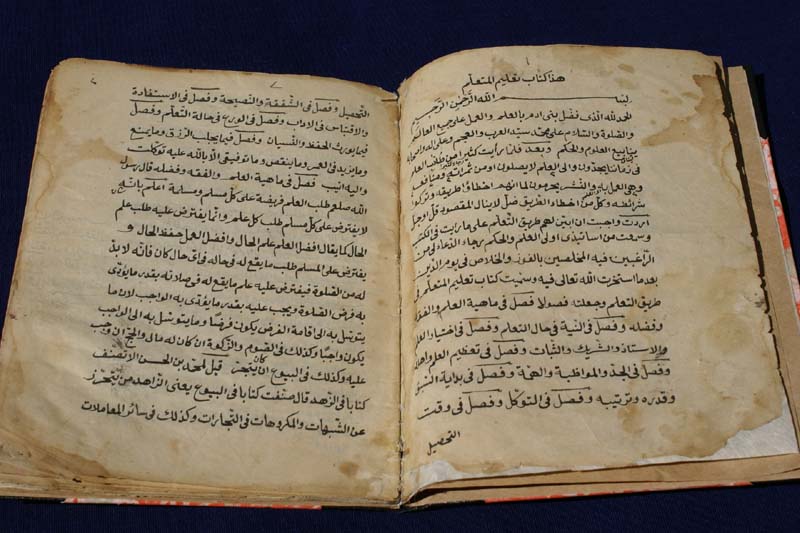

Zarnuji’s work represents a landmark in the history of Pedagogy in the Muslim East up to the turn of the 12th century...


On Wednesday 22nd April, a public lecture exploring “The Fihrist of Ibn al-Nadeem and the Transmission of Knowledge in the Islamic World” was presented by Professor Devin Stewart at the Al-Furqan Islamic Heritage Foundation.


World Book Day is a yearly event on 5th March, "designated by UNESCO as a worldwide celebration of books and reading, and marked in over 100 countries all over the world"*. On this occasion, we…


Al-Qabisi was the inventor of the concept and practice of 'Co-operative Teaching by the Teachers' which has been realised only in some of the modern educational systems in the 20th century.


The two day workshop, 24th and 25th June 2014


Scholar, inventor, mechanical engineer, craftsman and artist Al-Jazari featured on Dick and Dom's "Absolute Genius", Wednesday 26th February at 5:30 pm, CBBC. In a bid to engage pre-school children in the sciences, the BBC launched…


Professor Salim T S Al-Hassani, President of The Foundation for Science Technology and Civilisation (FSTC) was invited as the keynote speaker at the 21st Century World Summit on Child Education in Ankara, Turkey. A two…


In which era were classification of animals, world maps, medical knowledge of the body, the invention of trebuchet and other scientific, technological and cultural advances developed? One might assume that such advances were most likely…


Professor Salim Al-Hassani published in the issue 369 (Spring 2012, p. 10) of Runnymede Bulletin (Spring 2012 Runnymede Bulletin - Sport) a short article on “Sports in Muslim Heritage”. He argues, notably, that while Europe…
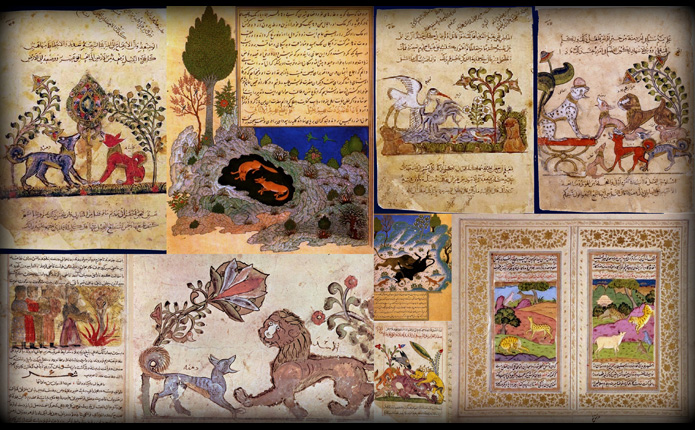

One of the most popular books ever written is the book the Arabs know as Kalila wa-Dimna, a bestseller for almost two thousand years, and a book still read with pleasure all over the world.…


Proceedings of the conference 1001 Inventions: Muslim Heritage in Our World organised by FSTC, London, 25-26 May 2010. Professor Emilia Calvo, a member of the Barcelona Team working since decades on the history of Islamic…


[Proceedings of the conference 1001 Inventions: Muslim Heritage in Our World organised by FSTC, London, 25-26 May 2010]. This presentation will reflect on the modern state of science in the Islamic-world and the potential of…


Professor Hamid M. K. Al-Naimy [Proceedings of the conference 1001 Inventions: Muslim Heritage in Our World organised by FSTC, London, 25-26 May 2010]. The aim of this paper is to introduce the status of research…


[Proceedings of the conference 1001 Inventions: Muslim Heritage in Our World organised by FSTC, London, 25-26 May 2010]. In this excellent statement addressed by HH Princess Sumaya bint El Hassan, President of El Hassan Science…


At first sight, the place held by education in Ibn Khaldun's sociology appears uncertain to say the least. What today we understand by the term ‘education'—the replication of individuals and groups, firstly at the level…


FSTC was invited to speak at the UK House of Lords for the Every Muslim Child Matters project


Al-Ghazali (1058-1111) was one of the most influential Muslim thinkers. A jurist, logician, theologian, and philosopher, he was honoured in the history of Islam with title of Hujjatul-Islam (the Proof of Islam)." Among his numerous…


This article is about the foundation of the Medical History Museum founded recently in Istanbul as part of the Istanbul University Cerrahpasa Medical School. The aim of this museum, founded by Professor Nil Sari in…


Abu `Ali Ahmad b. Muhammad b. Ya'qub Miskawayh (932-1030) is a brilliant intellectual and philosopher of 10th-century Buwayhid Baghdad. His effect on Islamic philosophy is mainly concerned with ethical issues. His book Tadhib al-akhlaq (Ethical…
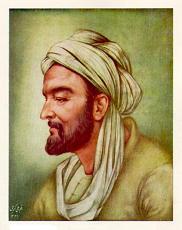

This study presents the theory of education in the philosophy of Ibn Sina, considered by ancient and modern scholars alike as the most famous of the Muslim philosophers. In his philosophical system, Ibn Sina outlined…


This is the text of a presentation made to The Education and Culture Committee of the EU Parliament in Brussels on the 5th November 2008.


This book is a collection of previously-published papers on the origins of economic thought discovered in the writings of some prominent Islamic scholars belonging to the five centuries prior to the pre-modern era. This period…


In this special section reproduced from Aramco World (issue March/April 1981), distinguished authors cover topics related to printing in the Islamic civilisation. It is showed, in particular, that contrary to the notion that the technology…


This article surveys the development of historical methodology in the works of some influent Muslim historians, observing their trends and scrutinizing everything related to narration of incidents, political, social, and sectarian currents.


This short article describes the high regard with which Muslim Civilisation has held libraries as centres of knowledge. It reviews major contributions in the field and in particular to our modern books and libraries.


To throw light on famous figures of the Turkish modern medical school, this article introduces a set of nine posters on the contribution of eight late Ottoman and early Turkish physicians (whose careers spanned from…
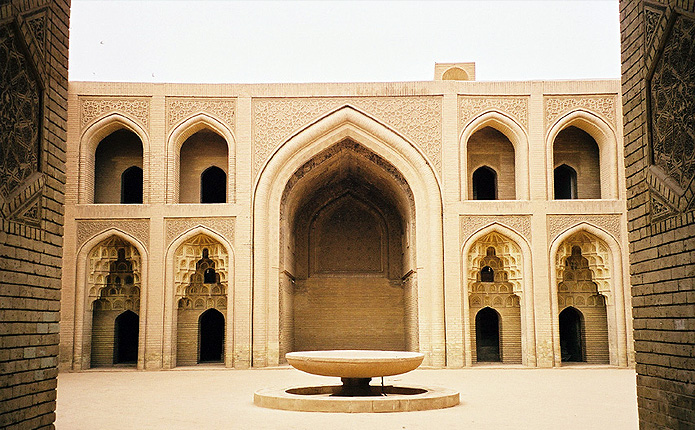

The House of Wisdom was in fame, status, scope, size, resources, patronage, etc. similar to that of the present day British Library in London or the Nationale Bibliotheque in Paris, in addition to being an…


Organised learning had been a feature of Islamic Civilisation since the beginning. The Prophet Muhammad would organise the education of a committed group who over time became the people of knowledge that spread Islam far…


Learning institutions in various forms have existed for centuries in the Muslim World, the earliest of which are, al-Qarawiyyin, al-Azhar and al-Qayrawan. This short article traces the emergence and spread of madrasas as a popular…


Medical doctors in the time of the Ottomans had various routes into professional life depending on their specialty. Some were trained on the model of master and apprentice, others studied courses at madrasas and at…


Primary schools have a long history in Islamic civilisation. Children were taught to memorise the entire Qur'an usually at primary school for example. Here is a look at how the primary schools under the Ottomans…


Though we may think of Timbuktu as the pre-eminent site of pre-colonial West African scholarship, we must remember that there were other places spanning across the Western and Central Sudan that were renowned for their…


The scholarship within Cairo was one which flourished with great vibrancy. The schoalrs contributed to the fields of mathematics, science, astronomy, philosophy, medicine and numerous other areas which are notable and worthy of study.


Karatay Madrasa can be considered as the apex of Seljuk architectural small space design. Major features of the madarasa are the great dome and the inclusion of elaborate decoration schemes, essentially from mosaics of glazed…


Merv is the city which in medieval times dominated the province of Khurasan in today's Turkmenistan.


Of the many splendours of Egypt, the Al-Azhar stands as a landmark in its architectural and cultural history, marking the beginning of the Fatimid rule and the foundation of its capital Cairo (Al-Qahira, "The Victorious").


Abul Mumin chose to build his mosque adjacent to the main street of booksellers to emphasize the importance of reading and learning as the main source of progress, hence the origin of the name "Kutubiya".
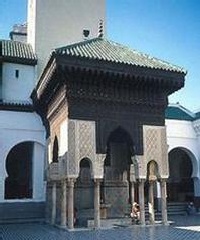

For well over twelve hundred years Al-Qarawiyyin has been one of the leading spiritual and educational centres of the Muslim World, a typical institution, of many, underlining how learning constituted the heart of the religion…


Turks have played an active part in the pursuit of science and learning in the Islamic World throughout its history. This activity is outlind here from the very formative stages of the islamic civilization down…


The Madrassa was one of the main venues of education in the Muslim World under the Ottoman Caliphate until 1924 when Ataturks' law abolished it in favour of modern schools and universities. In planning terms…


It is actually a hostility to Berbers and Turks that explains their being blamed for the decadence of Islam. The Seljuk role, it could be said, was in actual fact instrumental in saving whole Islamic…


The word ulema, which is widely used in the Islamic world, is used to refer to community based scholars. Ottoman ulema had been a basic element of the state and the society, presenting progressive visions…


The Imperial Tanzimat Rescript (Tanzimat Fermani) announced on 3 November 1839 provided state protection for basic rights and freedoms. Following this, programs of educational reform made the reorganization of secondary education a priority and the…


Ottoman Madrasas, were generally the continuation of traditional Islamic Madrasas, but they created their own curriculum and education tradition with the passing of centuries.


The madrasas of the early Ottoman period can be considered as institutions which continued the established educational tradition of the Seljuk Turks but also augmented by the contributions of the Ottomans.


It is possible to provide a basic (though only partial) outline of what was taught at Ottoman madrasas. Students would study from the books of (sarf), syntax (nahiv) and logic (mantik) and then hadith and…


Following the conquest of Istanbul, Mehmed the Conqueror initiated a campaign of construction. A new era in Ottoman education began with the establishment of the Fatih madrasas and the hierarchical structure of the madrasas was…
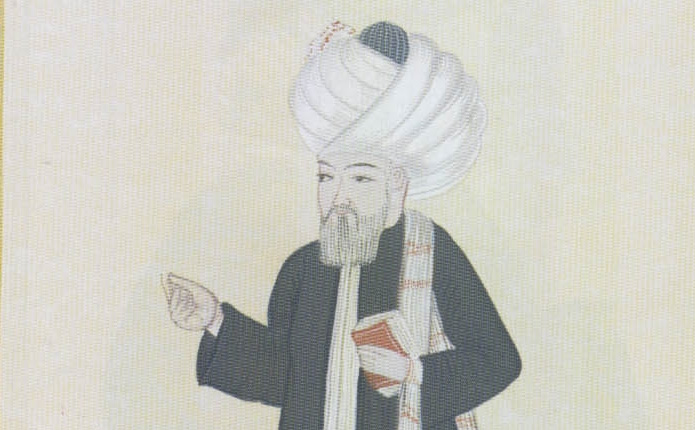

The Ottomans conserved the fundamental features of Islamic civilisation in their scientific institutions as they also did in social and cultural areas. Three of the six Ottoman state scientific institutions dealt with here are in…


Sankore's achievement in higher education is important to Islamic Civilisation even though it is less known in comparison to Al-Azhar, Al-Qayrawan, Al-Qarawiyyin and Qurtuba Universities.


Local builders employed by the Crusaders revealed the solutions to the problems of construction orally or by demonstration. Talbot Rice points out that in the area dominated by the Seljuk Turks during the Crusades there…
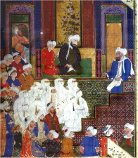

The female relatives of the khalifs and courtiers vied with each other in the patronage and cultivation of letters.


...leading by example, the Prophet made the first institution of Islam, the first mosque he built in Madinah, into an institution of learning.
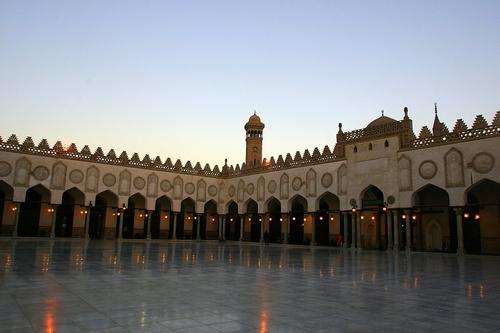

Al-Azhar Mosque in Cairo in Egypt is a fundamental Islamic monument with many dimensions. Constructed by the Caliph Al-Mu'izz li-Din Allah for the newly established capital city in 970, it was the first mosque established…


The NHS is struggling to retain health care providers, a notion that could be described as Drexit, as a consequence of Brexit. One solution to retaining health care providers is to welcome diversity by exploring…